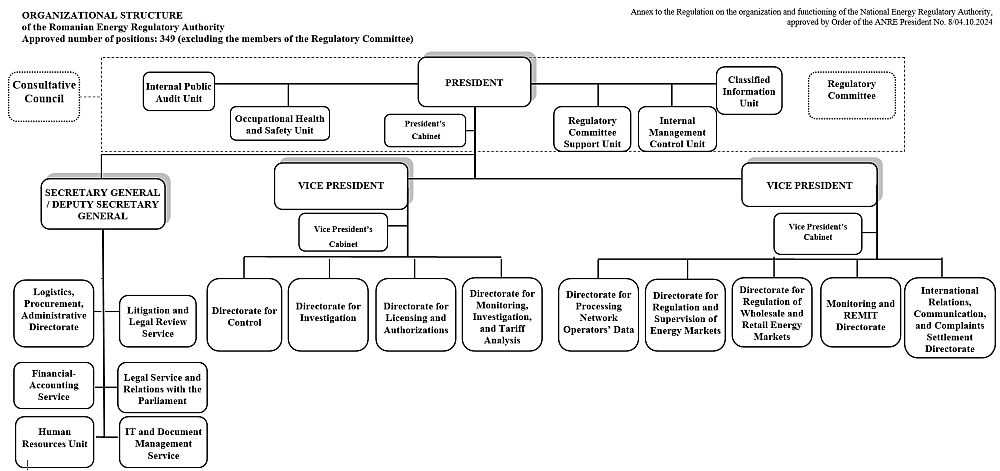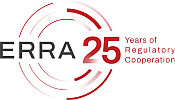Romanian Energy Regulatory Authority (ANRE)
Romanian Energy Regulatory Authority (ANRE)

Romania
Sectors Regulated:
Electricity, Natural Gas, District Heating
- 3 Constantin Nacu Street
020995 Bucharest 2, Romania - +40 21 327 8174, +41 21 327 8100
- anre-at-anre.ro
- www.anre.ro
Regulatory Authority General Information
- Joined ERRA in 2000 (Founding Member)
- Established in 1998
Responsibilities
- Legal basis/ mandate
- Electricity and Gas Law no. 123/2012, with subsequent amendments and modifications. Law no. 160/2012 for approval of Government Emergency Ordinance no. 33/2007 regarding organization and functioning of ANRE. Government Emergency Ordinance no. 33/2007 regarding organization and functioning of ANRE.
- Responsibilities
- The ANRE regulates electricity, heat (only the heat produced in cogeneration) and natural gas sectors. Responsibilities include licensing, issuing technical and commercial regulations including regulation of access to the transmission and distribution networks, setting tariffs and protecting the interests of consumers and investors.
- Authorities
- • Independence: ANRE is an autonomous administrative authority.
- • Supervised by: under Parliamentary control.
- • Reports to the Parliament.
- • Appeal process: Orders and decisions issued by the ANRE’s president could be appealed in the Administrative Litigation Division with the Bucharest Court of Appeal within 30 days following publication in Romania’s Official Gazette, part I, respectively from the date of notification of the parties involved.
Organisational Structure
- Organigram

- Internal Structure
- According to the Electricity and Gas Law no. 123/2012, ANRE’s organizational structure includes a President, two Vice-Presidents, and a seven-member Regulatory Committee responsible for approving regulations in the electricity, cogeneration, and natural gas sectors. The Committee is composed of the President, the two Vice-Presidents, and four additional members. All members of the Regulatory Committee are appointed and may be revoked by the Parliament in a joint session of both Chambers, for a term of five years, which can be renewed only once. However, in practice, ANRE currently operates with a President, one Vice-President, and only two members of the Regulatory Committee.
- Working Employees
- • Decision-Making Level: 7
- • Total Number of Employees: 304 (349 approved positions)
- Budget
- ANRE is financed through its own funds which are obtained from fees charged for licensing, permits and certifications, from annual contributions paid by the regulated undertakings in the electricity, heat and natural gas sectors as well as from funds provided by international organisations.

